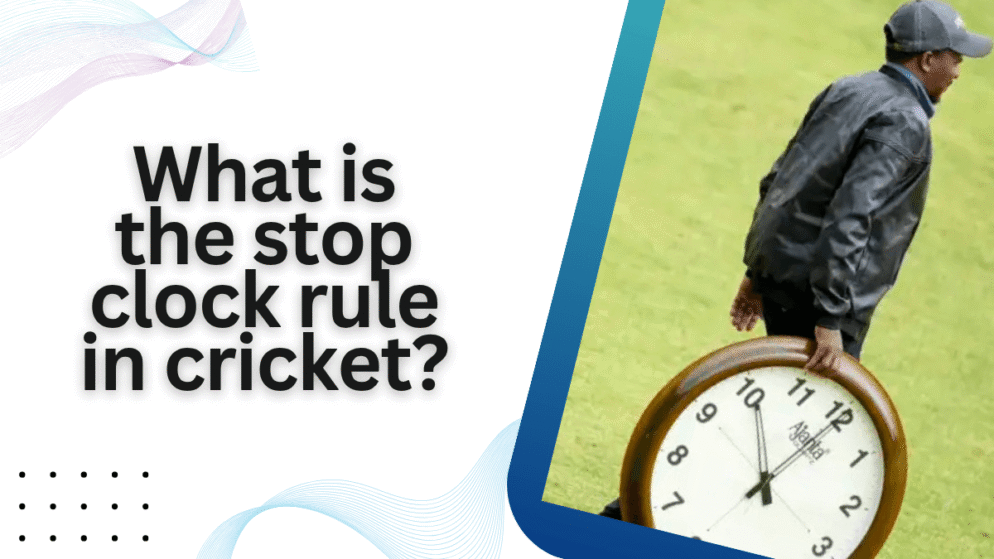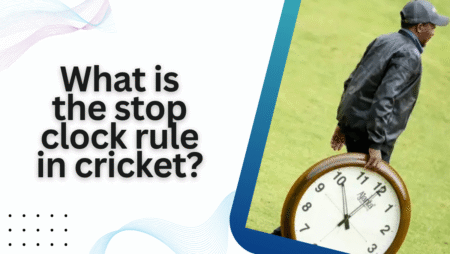

The International Cricket Council oversees the sport’s regulations and that the sport is played in good spirits. It ensures that the players and the officials abide by the rules set by the governors of the sport.
Ever since the introduction of T20 cricket, the pace of a cricket match has generally increased. The administrators of the game have kept a keen eye on the duration of a match in limited-overs cricket. An over is usually the unit of cricket. Based on this, a rule was set that stated that if the final over of an innings does not begin in a stipulated time, then the fielding side will have to place one fielder less outside the 30-yard circle.
The International Cricket Council in November 2023 introduced the stop clock rule. The executive meet in Ahmedabad decided to implement this rule on a trial basis between December 2023 to April 2024. The stop clock rule states that if the fielding side fails three times to start the next over within one minute, then a five-run penalty is imposed on the fielding side after the third instance.
After its successful use in limited overs cricket, the stop clock rule was introduced to test cricket in the 2025-27 World Test Championship cycle. While the basic rule remains the same, it is notable to mention that after a third delay (and the eventual penalty of five runs), the count of delays will reset to zero after 80 overs. Previously, the bowling side in test cricket was expected to finish 15 overs in one hour.
The stop clock rule ensures faster play. It also reduces the number of occurrences of slow over rates which usually leads to the captain of the team get fined from their match fee.
In June 2024, the USA became the first team to face a stop clock rule violation after which India were awarded five additional runs in the T20 World Cup fixture.








